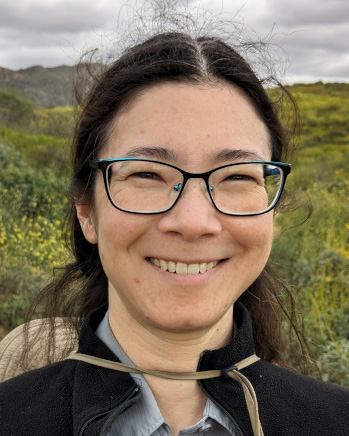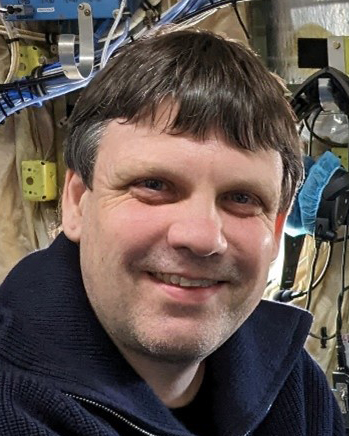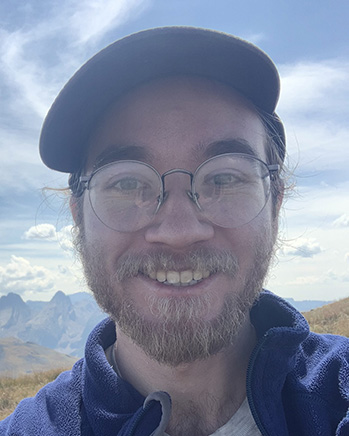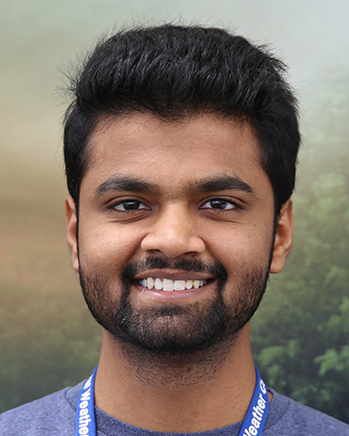ARM Adds Instrument Mentors
Published: 25 July 2024
New data analyst also joins ARM
The Atmospheric Radiation Measurement (ARM) user facility continues to welcome new staff to its team of more than 80 instrument mentors. This multi-institutional group of scientists and engineers helps oversee the operations of 430-plus instrument systems to ensure that ARM users are receiving the highest-quality data sets possible.

Sarah Suda Petters is now a lead instrument mentor for the ground-based portable optical particle spectrometer. She and co-lead Markus Petters have worked since 2023 at the University of California, Riverside (UCR).
Sarah Petters is an assistant research engineer at the UCR Bourns College of Engineering Center for Environmental Research and Technology, as well as an adjunct professor in the Department of Chemical and Environmental Engineering.
She leads the Atmospheric Nanophysical Chemistry Laboratory, where she is building instrumentation to measure nanoparticle size distribution dynamics and developing optical particle spectrometers for distributed deployment in the field.

Sarah Petters is working with two UCR undergraduates to test POPS that will be deployed in the Baltimore, Maryland, region to observe aerosol size distribution during ARM’s Coast-Urban-Rural Atmospheric Gradient Experiment (CoURAGE). The yearlong field campaign starts in December 2024.
Markus Petters, a researcher and professor in the Department of Chemical and Environmental Engineering, holds a small, mostly advisory role in this effort, including maintenance of software he wrote. He has a long history of using ARM data and leading ARM campaigns with support from the U.S. Department of Energy (DOE).
In late 2020, while working as a professor at North Carolina State University, he and a colleague co-led a campaign to study newly formed particles and turbulent flux measurements in the residual layer over ARM’s Southern Great Plains atmospheric observatory in Oklahoma. He then led a 2022 small campaign on particle flux measurements in the Houston, Texas, area during the TRacking Aerosol Convection interactions ExpeRiment (TRACER). Soon after, he led another small campaign, this one on coastal cloud chemistry during the 2023–2024 Eastern Pacific Cloud Aerosol Precipitation Experiment (EPCAPE) in La Jolla, California, which is about a two-hour drive south of Riverside.
DOE’s Atmospheric System Research (ASR) program published a profile on him and his career in February 2024.
New Mentor Supports Shortwave Spectral Radiometers

Ben Sheffer is a new associate instrument mentor based at the Cooperative Institute for Research in Environmental Sciences (CIRES) in Boulder, Colorado.
Sheffer provides data quality control and calibration and hardware/software support for the multifilter radiometer, multifilter rotating shadowband radiometer, normal incidence multifilter radiometer, and narrow field-of-view zenith radiometer.
Previously, Sheffer worked as a systems prototyping engineer at Zero ASIC.
Team Welcomes New Precipitation Instrument Mentor

Zeen Zhu, an atmospheric scientist at Brookhaven National Laboratory (BNL) in New York, is now an associate mentor for the weighing bucket precipitation gauge and impact, laser, and video disdrometers.
As a PhD student at Stony Brook University, Zhu participated in the 2018 ARM Summer Training and Science Applications Event in Oklahoma. He was among 24 students that went through the weeklong program, which focused on observations and modeling of clouds and precipitation.
Zhu graduated from Stony Brook in 2022 and worked at BNL as a research associate before joining ARM’s team of instrument mentors.
In his research, Zhu investigates warm cloud processes using a variety of research approaches, including remote sensing, in situ observations, model simulations, and laboratory experiments. His recent work focuses on developing and applying high-resolution radar to better observe cloud microphysics.
Zhu is also interested in investigating environmental risks under a warming climate. In June 2024 in Arizona, he participated in intensive fieldwork supporting DOE’s Southwest Urban Corridor Integrated Field Laboratory (SW-IFL), which aims to improve the understanding of extreme heat in urban areas.
Data Analyst Group Adds Fourth Member

ARM’s group of data analysts grew with the addition of Sid Gupta, an atmospheric scientist data analyst at Argonne, in September 2023.
The data analyst team also includes Israel Silber, Jingjing Tian, and Peng Wu—all earth scientists at Pacific Northwest National Laboratory in Washington state.
Gupta, Tian, and Wu were students during the 2018 ARM Summer Training and Science Applications Event along with Zhu, ARM’s new rain gauge and disdrometer mentor from BNL. At the time, Gupta was a PhD student at the University of Oklahoma, while Tian and Wu attended the University of Arizona.
Among his tasks, Gupta will analyze surface measurements and remote sensing retrievals from ARM’s Bankhead National Forest observatory in Alabama.
Before joining Argonne and ARM, Gupta was a postdoctoral research associate at BNL. His work at BNL included studying the evolution of isolated deep convection using ARM data from the Green Ocean Amazon (GoAmazon2014/15) campaign in Brazil.
Keep up with the Atmospheric Observer
Updates on ARM news, events, and opportunities delivered to your inbox
ARM User Profile
ARM welcomes users from all institutions and nations. A free ARM user account is needed to access ARM data.


















